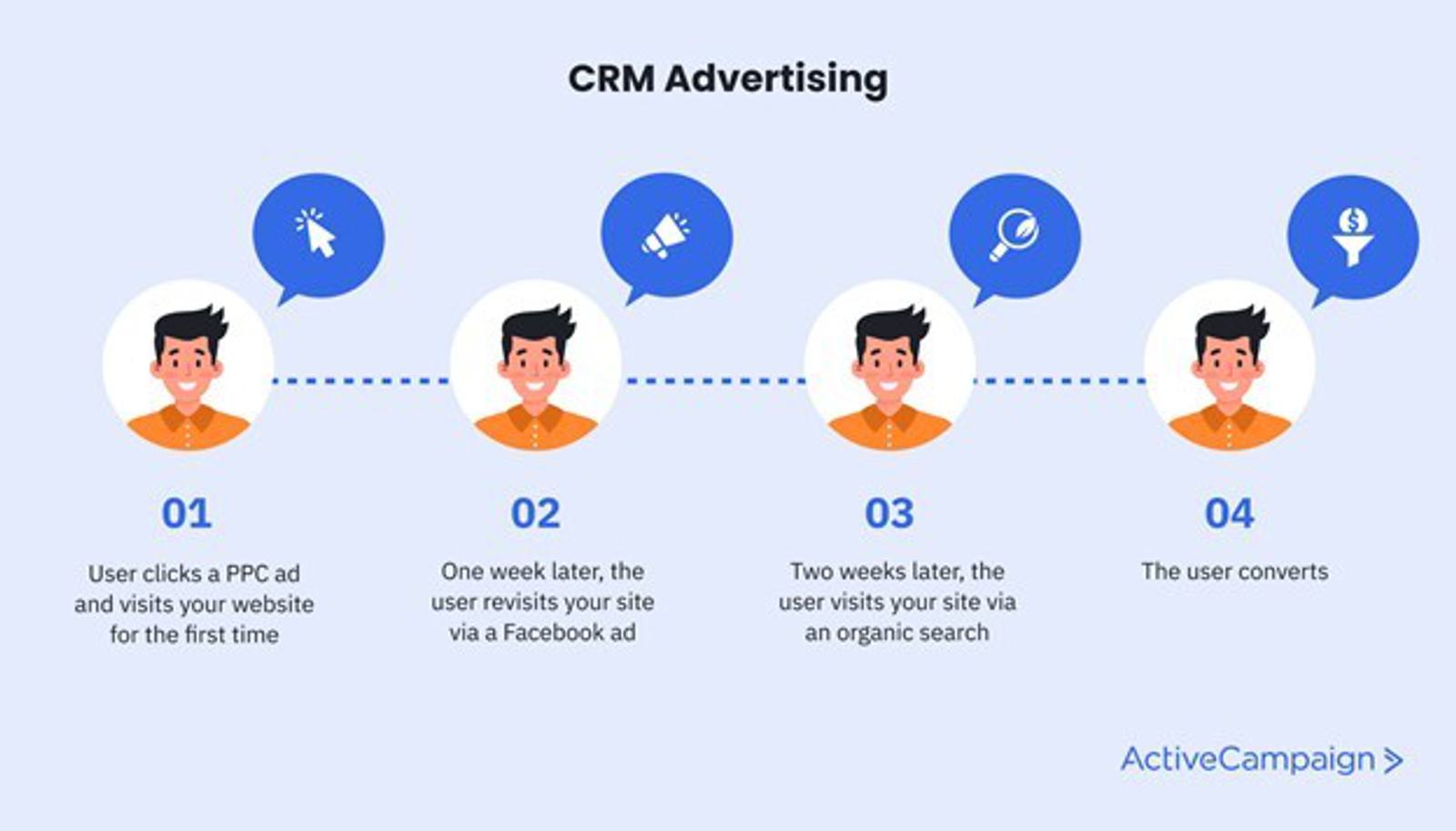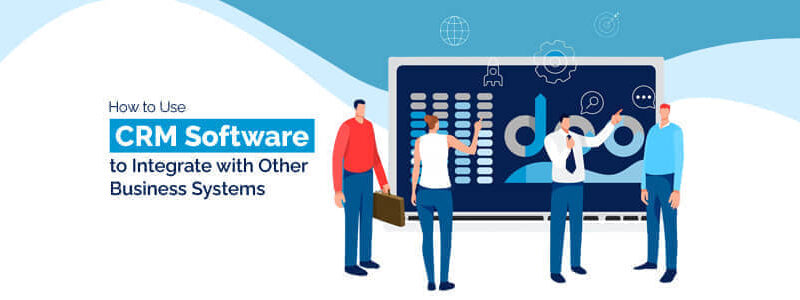In today’s digital age, the ability to tailor marketing efforts to individual preferences and behaviors is no longer a luxury but a necessity. Companies are leveraging Customer Relationship Management (CRM) data to create personalized marketing campaigns that resonate more deeply with their target audience.
By analyzing vast amounts of customer data, businesses can gain insights into consumer preferences, purchasing patterns, and engagement levels.
This data-driven approach allows for more effective targeting, higher customer satisfaction, and ultimately, increased ROI. As competition intensifies, those who master the art of personalized marketing will stand out in a crowded market.
Personalize Marketing Campaigns with CRM Data
Personalizing marketing campaigns using Customer Relationship Management (CRM) data is a powerful strategy to enhance customer engagement and drive higher conversion rates.
By leveraging the detailed information stored in your CRM, such as purchase history, customer preferences, and interaction patterns, you can tailor your marketing messages to meet the specific needs and interests of each customer.
This personalized approach not only improves the customer experience but also increases the effectiveness of your marketing efforts, leading to better ROI and stronger customer loyalty.
Leveraging CRM Data for Segmentation
Effective segmentation is the cornerstone of personalized marketing. CRM data allows you to divide your customer base into distinct segments based on various criteria such as demographics, behavior, and preferences.
By understanding the unique characteristics of each segment, you can craft targeted marketing campaigns that resonate more deeply with each group.
For example, if your CRM data shows that a segment of customers frequently purchases eco-friendly products, you can create a campaign highlighting your sustainable product offerings. This level of personalization ensures that your messages are relevant and engaging, increasing the likelihood of conversion.
Utilizing Customer Interaction Data
The interaction data captured in your CRM provides valuable insights into how customers engage with your brand. This includes data on email open rates, website visits, and social media interactions.
By analyzing this data, you can identify the most effective communication channels and the types of content that resonate best with your audience. For instance, if you notice that a particular customer segment frequently engages with your social media posts, you can prioritize social media as a primary channel for targeted campaigns.
This data-driven approach ensures that your marketing efforts are aligned with customer preferences, leading to higher engagement and better campaign performance.
Automating Personalization with CRM Tools
Modern CRM systems often come equipped with automation tools that can help streamline the process of personalizing marketing campaigns. These tools can automatically send tailored messages based on predefined triggers, such as a customer’s purchase history or recent website activity.
For example, you can set up an automated email campaign that sends a personalized product recommendation to a customer who has recently viewed a specific category on your website. This level of automation not only saves time but also ensures that your messages are timely and relevant, enhancing the overall customer experience.
| Segmentation Criteria | Example |
|---|---|
| Demographics | Age, Gender, Location |
| Purchase History | Frequent buyers of eco-friendly products |
| Behavioral Patterns | Email open rates, website visit frequency |
| Preferences | Interest in promotions, content preferences |
What is personalization in CRM?
Personalization in CRM, or Customer Relationship Management, refers to the process of tailoring interactions, communications, and marketing efforts to meet the specific needs and preferences of individual customers.
This approach leverages data and analytics to create a more relevant and engaging experience for each customer, thereby enhancing customer satisfaction, loyalty, and overall business performance.
Personalization in CRM can encompass various aspects, including personalized emails, targeted product recommendations, and customized service interactions, all aimed at building stronger and more meaningful relationships with customers.
Why is Personalization Important in CRM?
Personalization in CRM is crucial because it helps businesses stand out in a crowded market by providing a more tailored and relevant experience to their customers.
When customers feel understood and valued, they are more likely to remain loyal and continue doing business with the company. Personalization can lead to higher customer satisfaction, increased customer retention, and greater customer lifetime value.
Additionally, it can improve conversion rates and drive more effective marketing campaigns by ensuring that the right message reaches the right customer at the right time.
- Enhanced Customer Engagement: Personalized interactions can significantly increase customer engagement by making customers feel seen and understood.
- Increased Customer Satisfaction: Tailored experiences often result in higher customer satisfaction, as customers are more likely to find what they need quickly and easily.
- Improved Marketing Effectiveness: Personalized marketing campaigns can have higher open rates, click-through rates, and conversion rates compared to generic campaigns.
How is Personalization Achieved in CRM?
Personalization in CRM is achieved through the collection and analysis of customer data. This data can include past purchase history, browsing behavior, demographic information, and customer feedback. CRM systems use this data to create detailed customer profiles and segments, which are then used to personalize interactions and communications. Advanced analytics and machine learning algorithms can further enhance personalization by predicting customer needs and behaviors, allowing businesses to proactively address customer issues and offer relevant recommendations.
- Data Collection: Gathering data from various sources, such as sales transactions, website interactions, and social media, to build a comprehensive customer profile.
- Data Analysis: Analyzing the collected data to identify patterns, preferences, and behaviors that can inform personalized interactions.
- Automation and AI: Utilizing automation and artificial intelligence to deliver personalized experiences at scale, from email campaigns to chatbot interactions.
Challenges and Considerations in Personalization
While personalization in CRM offers numerous benefits, it also comes with challenges and considerations that businesses must address. One of the primary concerns is data privacy and security. Customers are increasingly wary of how their data is used, and businesses must ensure that they comply with data protection regulations and build trust through transparent practices. Additionally, the accuracy of the data used for personalization is crucial; inaccurate or outdated data can lead to irrelevant or even offensive personalization efforts. Finally, businesses must strike a balance between personalization and privacy, ensuring that they do not come across as intrusive or overbearing in their personalized interactions.
- Data Privacy: Ensuring that customer data is collected, stored, and used in accordance with legal and ethical standards to build trust.
- Data Accuracy: Maintaining the accuracy and relevance of customer data to ensure that personalization efforts are effective and meaningful.
- Customer Consent: Obtaining and respecting customer consent for data collection and personalization, and providing options for customers to opt out.
What are CRM marketing campaigns?
CRM marketing campaigns are strategic initiatives designed to manage and analyze customer interactions and data throughout the customer lifecycle. These campaigns leverage Customer Relationship Management (CRM) systems to enhance customer engagement, improve marketing effectiveness, and drive business growth.
By collecting and analyzing customer data, CRM systems enable marketers to create personalized marketing messages, automate communication, and track campaign performance in real-time.
This data-driven approach helps businesses better understand customer preferences, behaviors, and pain points, allowing for more targeted and effective marketing efforts.
Key Components of CRM Marketing Campaigns
CRM marketing campaigns are built on several key components that work together to enhance customer engagement and drive business outcomes:
- Data Collection: Gathering customer data from various sources such as website interactions, social media, sales transactions, and customer service interactions.
- Customer Segmentation: Dividing the customer base into distinct segments based on demographics, behaviors, and preferences to tailor marketing messages effectively.
- Personalization: Using customer data to create personalized marketing content, offers, and experiences that resonate with individual customers.
Benefits of CRM Marketing Campaigns
Implementing CRM marketing campaigns can yield numerous benefits for businesses:
- Improved Customer Retention: Personalized and relevant campaigns can increase customer loyalty and reduce churn rates.
- Enhanced Customer Experience: Tailored interactions and offers can lead to more satisfying customer experiences, driving higher customer satisfaction.
- Data-Driven Decision Making: Access to real-time data and analytics enables marketers to make informed decisions and optimize campaign performance.
Common Strategies in CRM Marketing Campaigns
Effective CRM marketing campaigns often employ a variety of strategies to achieve their goals:
- Email Marketing: Sending targeted emails with personalized content and offers based on customer behavior and preferences.
- Automation: Using automated workflows to send timely and relevant messages, such as welcome emails, abandoned cart reminders, and follow-up communications.
- Multi-Channel Engagement: Reaching customers through multiple channels, including email, SMS, social media, and in-app notifications, to create a cohesive and omnichannel experience.
How to leverage user data for personalized marketing?

Leveraging user data for personalized marketing is essential in today’s competitive landscape. By understanding and utilizing customer data effectively, businesses can tailor their marketing efforts to meet individual preferences, enhance customer engagement, and drive higher conversion rates.
Here’s how to leverage user data for personalized marketing:
1. Collect and Organize User Data
Collecting user data is the first step in creating a personalized marketing strategy. This data can come from various sources such as website analytics, customer surveys, social media interactions, and purchase history. Once you have the data, it is crucial to organize it in a structured manner.
Use customer relationship management (CRM) systems or data management platforms (DMPs) to consolidate and categorize the information. This will make it easier to analyze and use the data effectively.
- Use cookies and tracking pixels to monitor user behavior on your website.
- Implement surveys and feedback forms to gather direct input from customers.
- Integrate data from multiple channels to get a comprehensive view of each customer.
2. Analyze User Data for Insights
Once you have organized the user data, the next step is to analyze it to gain valuable insights. Data analysis can help you understand customer preferences, behavior patterns, and pain points. Use tools like data analytics software and machine learning algorithms to identify trends and segments within your customer base.
These insights can inform your marketing strategies and help you create more targeted and effective campaigns.
- Segment your audience based on demographics, behavior, and preferences.
- Identify key performance indicators (KPIs) to measure the success of your campaigns.
- Use A/B testing to refine and optimize your marketing messages.
3. Implement Personalized Marketing Strategies
With the insights gained from analyzing user data, you can now implement personalized marketing strategies. Personalization can take many forms, including customized email campaigns, dynamic website content, and personalized product recommendations.
The goal is to create a seamless and relevant experience for each customer. Ensure that your marketing messages resonate with your audience by addressing their specific needs and interests.
- Create customized email campaigns that include personalized content and product recommendations.
- Use dynamic content on your website to display relevant information based on user behavior.
- Implement personalized offers and promotions to incentivize repeat purchases and loyalty.
What is CRM data in advertising?

CRM data in advertising refers to the utilization of customer relationship management (CRM) information to enhance advertising strategies and campaigns. CRM data typically includes a wealth of customer information such as contact details, purchase history, behavioral patterns, and preferences.
By integrating this data into advertising efforts, businesses can create more personalized and targeted marketing messages, improving customer engagement and conversion rates.
CRM data allows advertisers to segment their audience more effectively, tailor ad content to specific customer groups, and measure the effectiveness of their campaigns with greater precision.
How CRM Data Enhances Targeted Advertising
CRM data enhances targeted advertising by providing deep insights into customer behavior and preferences. Advertisers can use this data to create detailed customer profiles, which help in identifying the most effective channels and messages for different segments.
For example, if the CRM data shows that a particular group of customers frequently engages with social media, advertisers can focus more on social media campaigns. Additionally, CRM data can be used to retarget customers who have shown interest in specific products or services.
- Creates detailed customer profiles based on purchase history and behavior.
- Identifies the most effective marketing channels for different customer segments.
- Enables retargeting of customers based on their past interactions and interests.
The Role of CRM Data in Personalization
Personalization is a key aspect of modern advertising, and CRM data plays a crucial role in achieving this. By leveraging CRM data, advertisers can craft personalized messages that resonate with individual customers.
This personalization can range from simple name personalization in emails to more complex personalized content recommendations based on past purchases and browsing history. Personalized advertising not only enhances the customer experience but also increases the likelihood of conversion.
- Allows for name personalization in marketing communications.
- Enables content recommendations based on past purchases and browsing history.
- Enhances the customer experience by making interactions more relevant.
Measuring the Effectiveness of CRM-Driven Advertising
The effectiveness of CRM-driven advertising can be measured through various metrics and analytics. CRM data provides a robust framework for tracking customer interactions and responses to advertising campaigns.
By analyzing this data, advertisers can gain insights into which strategies are working and which need refinement. Key metrics include conversion rates, engagement rates, and customer lifetime value. These metrics help in optimizing future campaigns and ensuring a higher return on investment.
- Tracks customer interactions and responses to advertising campaigns.
- Provides insights into the effectiveness of different advertising strategies.
- Optimizes future campaigns by refining strategies based on data-driven insights.
Frequently Asked Questions
How can CRM data enhance personalization in marketing campaigns?
CRM data provides detailed insights into customer preferences, behaviors, and history, allowing marketers to tailor content and offers to individual needs. This personalization can significantly increase engagement and conversion rates by making communications more relevant and timely.
What are the key steps to integrate CRM data into marketing campaigns?
The key steps include data collection, segmentation, creating personalized content, setting up automated workflows, and analyzing performance. Regularly updating and cleaning the CRM database ensures accuracy and relevance.
How does personalization with CRM data benefit customer retention?
Personalization with CRM data helps in building stronger customer relationships by delivering relevant and timely content. This enhances customer satisfaction and loyalty, leading to higher retention rates and increased customer lifetime value.
Can CRM data be used across multiple marketing channels?
Yes, CRM data can be integrated across various channels such as email, social media, SMS, and more. This multi-channel approach ensures consistent and coordinated messaging, improving the overall customer experience and campaign effectiveness.


